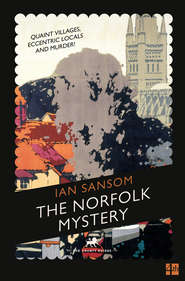
Полная версия:
The Norfolk Mystery

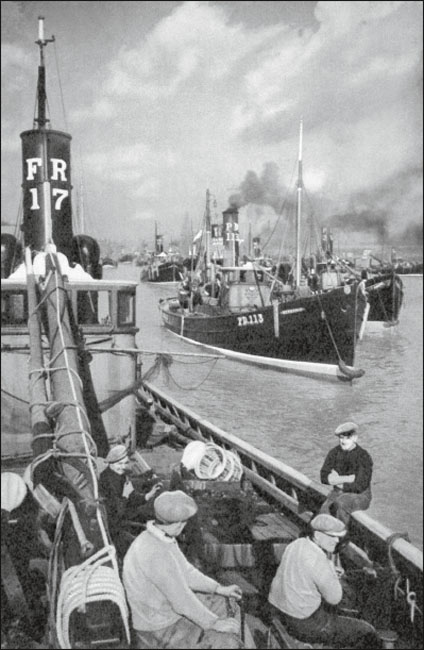
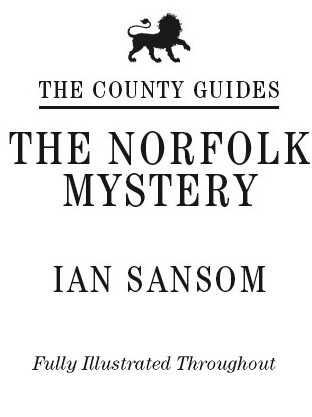
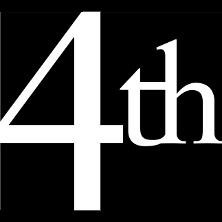
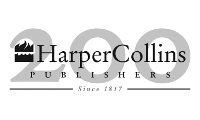
Copyright
Fourth Estate
An imprint of HarperCollinsPublishers Ltd. 1 London Bridge Street London SE1 9GF
www.harpercollins.co.uk
This ebook first published in Great Britain by Fourth Estate in 2013
Copyright © Ian Sansom 2013
Cover image © Science & Society Picture Library / Getty Images
Ian Sansom asserts the moral right to be identified as the author of this work
A catalogue record for this book is available from the British Library
This novel is entirely a work of fiction. The names, characters and incidents portrayed in it, while at times based on historical figures, are the work of the author’s imagination.
All rights reserved under International and Pan-American Copyright Conventions. By payment of the required fees, you have been granted the non-exclusive, non-transferable right to access and read the text of this ebook on-screen. No part of this text may be reproduced, transmitted, down-loaded, decompiled, reverse engineered, or stored in or introduced into any information storage and retrieval system, in any form or by any means, whether electronic or mechanical, now known or hereinafter invented, without the express written permission of HarperCollins ebooks
HarperCollinsPublishers has made every reasonable effort to ensure that any picture content and written content in this ebook has been included or removed in accordance with the contractual and technological constraints in operation at the time of publication
Source ISBN: 9780007360482
Ebook Edition © June 2013 ISBN: 9780007360499
Version: 2017-11-03
Dedication
For my parents
Contents
Cover
Title Page
Copyright
Dedication
Chapter One
Chapter Two
Chapter Three
Chapter Four
Chapter Five
Chapter Six
Chapter Seven
Chapter Eight
Chapter Nine
Chapter Ten
Chapter Eleven
Chapter Twelve
Chapter Thirteen
Chapter Fourteen
Chapter Fifteen
Chapter Sixteen
Chapter Seventeen
Chapter Eighteen
Chapter Nineteen
Chapter Twenty
Keep Reading …
Acknowledgements
Picture Credits
About the Author
Also by Ian Sansom
About the Publisher

CHAPTER ONE
REMINISCENCES, of course, make for sad, depressing literature.
Nonetheless. Some stories must be told.
In the year 1932 I came down from Cambridge with my poor degree in English, a Third – what my supervisor disapprovingly referred to as ‘the poet’s degree’. I had spent my time at college in jaunty self-indulgence, rising late, cutting lectures, wandering round wisteria-clad college quadrangles drinking and carousing, occasionally playing sport, and attempting – and failing – to write poetry in imitation of my great heroes, Eliot, Pound and Yeats. I had grand ambitions and high ideals, and absolutely no notion of exactly how I might achieve them.
I certainly had no intention of becoming involved in the exploits and adventures that I am about to relate.
By late August of 1932, recovering at last from the long hangover of my childhood and adolescence, and quite unable, as it turned out, to find employment suited to my ambitions and dreams, I put down my name on the books of Messrs Gabbitas and Thring, the famous scholastic agency, and so began my brief and undistinguished career as a schoolmaster.
I shall spare the uninitiated reader the intimate details of the life of the English public school: it is, suffice it to say, a world of absurd and deeply ingrained pomposities, and attracts more than its fair share of eccentrics, hysterics, malcontents and ne’er-do-wells. At Cambridge I had been disappointed not to meet more geniuses and intellectuals: I had foolishly assumed the place would be full to the brim with the brightest and the best. As a lowly schoolmaster in some of the more minor of the minor public schools, I now found myself among those I considered to be little better than semi-imbeciles and fools. After grim stints at Arnold House, Llandullas and at the Oratory in Sunning – institutions distinguished, it seemed to me, only by their ability to render both their poor pupils and their odious staff ever more insensitive and insensible – I eventually found myself, by the autumn of 1935, in a safe berth at the Hawthorns School in Hayes. This position, though carrying with it all the usual and tiresome responsibilities, was, by virtue of the school’s location on the outskirts of London, much more congenial to me and afforded me the opportunity to reacquaint myself with old friends from my Cambridge days. Some had drifted into teaching or tutoring; some had found work with the BBC, or with newspapers; a lucky few had begun to make their mark in the literary and artistic realms. Those around me, it seemed, were flourishing: they rose, and rose.
I was sinking.
After leaving Cambridge I had, frankly, lost all direction, purpose and motivation. At school I had been prepared for varsity: I had not been prepared for life. After Cambridge I had given up on my poetry and became lazier than ever in my mental habits, frequenting the cinema most often to enjoy only the most vulgar and the gaudiest of its productions: The Black Cat, The Scarlet Pimpernel, Tarzan and His Mate. Where once I had immortal longings my dreams now were mostly of Claudette Colbert. I had also become something of an addict of the more lurid work of the detective novelists – a compensation, no doubt, for the banalities of my everyday existence. The air in the pubs around Fitzrovia in the mid-1930s, however, was thick with talk of Marx and Freud and so – if only to impress my friends and to try to keep up – I gradually found myself returning to more serious reading. I read Mr Huxley, for example – his Brave New World. And Ortega y Gasset’s The Revolt of the Masses. Strachey’s The Coming Struggle for Power. Malraux’s La Condition Humaine. These were books in ferment, as we were: these were the writers who were dreaming our wild and fantastic dreams. I began to attend meetings in the evenings. I distributed pamphlets. I frequented Hyde Park Corner. I read the Daily Worker. I came under the sway of, first, Aneurin Bevan and, then, Harry Pollitt.
I joined the Communist Party.
In the party I had found, I believed, an outlet and a home. I devoured Marx and Engels – slowly, and in English. I was particularly struck by a phrase from the Communist Manifesto, which I carefully copied out by hand and taped above my shaving mirror, the better to excite and affront myself each morning: ‘Finally, as the class struggle nears its decisive stage, disintegration of the ruling class and the older order of society becomes so active, so acute, that a small part of the ruling class breaks away to make common cause with the revolutionary class, the class which holds the future in its hands.’ After years as a pathetic Mr Chips, conducting games, leading prayers and encouraging the work of the OTC, I was desperate to hold the future, any future, in my hands.
And so, in October 1936 I left England and the Hawthorns for Barcelona and the war.
I arrived in Spain in what I now recognise as a kind of fever of idealism. I eventually returned to England almost twelve months later in turmoil, confusion and in shock. Although I had read of the great movement of masses and the coming revolution, in Spain I saw it for myself. I had long taught my pupils the stories of the great battles and the triumphs of the kings and queens of England, the tales of the Christian martyrs, and the epic poetry of Homer, the tragedies of Shakespeare. I now faced their frightful reality.
Even now I find I am able to recall incidents from the war as if they happened yesterday, though they remain strangely disconnected in my mind, like cinematic images, or fragments of what Freud calls the dreamwork. From the first interview at the party offices on King Street – ‘So you want to be a hero?’ ‘No.’ ‘Good. Because we don’t need bloody heroes.’ ‘So are you a spy?’ ‘No.’ ‘Are you a pawn of Stalin?’ ‘No.’ ‘What are you then?’ ‘I am a communist’ – to arriving in Paris, en route, early in the morning, sick, hung over, shitting myself with excitement in the station toilets, shaking and laughing at the absurdity of it. And then the first winter in Spain, shell holes filled to the brink with a freezing crimson liquid, like a vast jelly – blood and water mixed together. And in summer, coming across a farm where there were wooden wine vats, and climbing in and bathing in the cool wine, while the grimy, fat, terrified farmer offered his teenage daughters to us in exchange for our not murdering them all. In a wood somewhere, in the bitter cold spring of 1937, staring at irises and crocuses poking through the dark mud, and thinking absurdly of Wordsworth, the echoing sound of gunfire all around, wounded men passing by, strapped to the back of mules. The taste of water drunk from old petrol tins. The smell of excreta and urine. Olive oil. Thyme. Candle grease. Cordite. Endless sleeplessness. Lice. The howling winds. The sizzling of the fat as we make an omelette in a large, black pan over an open fire, cutting it apart with our knives. Gorging on a field of ripe tomatoes. The Spanish rain. The hauling of the ancient Vickers machine guns over rocky ground.
And, of course, the dead. Everywhere the dead. Corpses laid out at the side of the road, the sight and smell of them like the mould on jam, maggots alive everywhere on their bodies. Corpses with their teeth knocked out – with the passing knock of a rifle butt. Corpses with their eyes pecked out. Corpses stripped. Corpses disembowelled. Corpses wounded, desecrated and disfigured.
In a year of fighting I was myself responsible for the murder of perhaps a dozen men, many of them killed during an attack using trench mortars on a retreating convoy along the Jaca road in March, May 1937? There was one survivor of this atrocity who lay in the long grass by the road, calling out for someone to finish him off. He had lost both his legs in the blast, and his face had been wiped away with shrapnel; he was nothing but flesh. A fellow volunteer hesitated, and then refused, but for some reason I felt no such compunction. I acted neither out of compassion nor in rage – it was simply what happened. I shot the poor soul at point-blank range with my revolver, my mousqueton, the short little Mauser that I had assembled and reassembled from the parts of other guns, my time with the OTC at the Hawthorns School having stood me in good stead. To my shame, I must admit not only that I found the killing easy, but that I enjoyed it: it sickened me, but I enjoyed it; it made me walk tall. I felt for the first time since leaving college that I had a purpose and a role. I felt strong and invincible. I had achieved, I believed, the ultimate importance. I was like a demi-god. A saviour. I had become an instrument of history. The Truly Strong Man.
I was, in fact, nothing but a cheap murderer.
I was vice triumphant.
Soon after, I was wounded – shot in the thigh. We had been patrolling a no-man’s-land at night, somewhere near Figueras. We were ambushed. There was confusion. Men running blindly among rocks and trees. At the time, the strike of the bullet felt to me as no more than a slight shock, like an insect bite, or an inconvenience. The pain, unspeakable, came later: the feeling of jagged metal inside you. Indescribable. I was taken in a convoy of the wounded to a hospital, no more than a series of huts that had once been a bicycle workshop, requisitioned from the owners, where men lay on makeshift beds, howling and weeping, calling out in a babel of languages, row upon row of black bicycle frames and silver wheels hanging down above us, like dark mechanical angels tormenting our dreams. I was prescribed morphine and became delirious with nightmares and night sweats. Weeks turned into months. Eventually I was transferred to Barcelona, and then by train to France, and so back home to England, beaten, and limping like a wounded animal.
The adventure had lasted little more than a year.
It seemed like a lifetime.
Ironically, on returning from Spain, I found myself briefly popular, hailed by friends as a hero, and by idling fellow travellers as their representative on the Spanish Front. There were grand luncheons, at Gatti’s in the Strand, and speaking engagements in the East End, wild parties at Carlton House Terrace, late night conversations in the back rooms of pubs – a disgusting, feverish gumping from place to place. Unable to comprehend exactly what had happened to me, I spoke to no one of my true experiences: of the vile corruption of the Republicans; the unspeakable coarseness and vulgarity of my fellow volunteers; the thrill of cowardly murder; my privileged glimpse of the future. I spoke instead as others willed me to speak, pretending that the war was a portent and a fulfilment, the opening salvo in some glorious final struggle against the bourgeois. Lonely and confused, attempting to pick up my life again, I ran, briefly, a series of intense love affairs, all of them with unsuitable women, all of them increasingly disagreeable to me. One such relationship was with a married woman, the wife of the headmaster of the Hawthorns, where I had returned to teach. We became deeply involved, and she began to nurture ideas of our fleeing together and starting our lives again. This proposed arrangement I knew to be not merely impossible but preposterous, and I broke off the relationship in the most shaming of fashions – humiliating her and demeaning myself. There was a scandal.
I was, naturally, dismissed from my post.
What few valuable personal belongings and furnishings I possessed – my watch, some paintings, books – I sold in order to fund my inevitable insolvency, and to buy drink. A cabin trunk I had inherited from my father, my most treasured possession – beautifully crafted in leather, and lined in watered silk, with locks and hinges of solid brass, my father’s initials emblazoned upon it, and which had accompanied me from school to Cambridge and even on to Spain – I sold, in a drunken stupor, to a man in a pub off the Holloway Road for the princely sum of five shillings.
I had become something utterly unspeakable.
I was not merely an unemployed private school master.
I was a monster of my own making.
I moved into temporary lodgings in Camden Town. My room, a basement below a laundry, was let to me furnished. The furnishings extended only to a bed, a small table and a chair: it felt like a prison cell. Water ran down the walls from the laundry, puddling on the floor and peeling back the worn-out linoleum. Slugs and insects infested the place. At night I tried writing poems again, playing Debussy, and Beethoven’s late quartets and Schubert’s Winterreise – in a wonderful recording by Gerhard Hüsch, which reduced me to tears – again and again and again on my gramophone to drown out the noise of the rats scurrying on the floor above.
I failed to write the poems.
I sold the Debussys, and the Beethovens and Gerhard Hüsch singing Schubert.
And then I sold the gramophone.
During my time in Spain a shock of my hair had turned a pure white, giving me the appearance of a badger, or a skunk: with my limp, this marking seemed to make me all the more damaged, like a shattered rock, or a sliver of quartz; the mark of Cain. I had my hair cropped like a convict’s and wore thin wire-rimmed spectacles, living my days as a hero-impostor, and my nights in self-lacerating mournfulness. Sleep fled from me. I found it impossible to communicate with friends who had not been to Spain, and with those who had I felt unable to broach the truth, fearing that my experiences would not correspond to their own. Milton it was – was it not? – who was of the opinion that after the Restoration the very trees and vegetation had lost heart, as he had, and had begun to grow more tardily. I came to believe, after my return from Spain, that this was indeed the case: my food and drink tasted bitter; the sky was filled with clouds; London itself seemed like a wilderness. Everything seemed thin, dead and grey.
I covered up my anxieties and fears with an exaggerated heartiness, drinking to excess until late at night and early into the morning, when I would seek out the company of women, or take myself to the Turkish Baths near Exmouth Market, where the masseur would pummel and slap me, and I could then plunge into ice-cold waters, attempting to revive myself. A drinking companion who had returned from America provided me with a supply of Seconal, which I took at night in order to help me sleep. I had become increasingly sensitive to and tormented by noise: the clanging and the banging of the city, and the groaning and chattering of people. I could nowhere find peace and quiet. During the day I would walk or cycle far out of London into the country, wishing to escape what I had become. I would picnic on bread and cheese, and lie down to nap in green fields, where memories of Spain would come flooding back to haunt me. I bound my head with my jacket, the sound of insects disturbed me so – like fireworks, or gunfire. I was often dizzy and disoriented: I felt as though I were on board ship, unable to disembark, heading for nowhere. I took aspirin every day, which unsettled my stomach. Some nights I would sleep out under the stars, in the shelter of the hedges, lighting a fire to keep me warm, begging milk from farmers and eating nuts and berries from the hedgerow. The world seemed like nothing more than a vast menacing ocean, or a desert, and I had become a nomad. Sometimes I would not return to my lodgings for days. No one noted my absences.
Near Tunbridge Wells one day, in Kent, I retreated to the safety of a public library to read The Times – something to distract me from my inner thoughts. Which was where I saw the advertisement, among ‘Appointments & Situations Vacant’:
Assistant (Male) to Writer. Interesting work; good salary and expenses; no formal qualifications necessary; applicants must be prepared to travel; intelligence essential. Write, giving full particulars, BOX E1862, The Times, E.C.4.
I had, at that moment, exactly two pounds ten shillings to my name – enough for a few weeks’ food and rent, maybe a month, a little more, and then …
I believed I had already engineered my own doom. There was no landfall, only endless horizon. I foresaw no future.
I applied for the job.

CHAPTER TWO
THE INTERVIEW for the post took place in a private room at the Reform Club. If I were writing a novel I should probably at this point reveal to the reader the name of my prospective employer, and the reasons for his seeking an assistant. But since I intend to make this as true an account as I can make it of what occurred during our time together, I shall content myself with gradually revealing the facts as they revealed themselves to me. I had, I should stress, absolutely no knowledge during the course of my interview of the nature of the employment to follow. If I had, I would doubtless have scorned it and thus played no part in the strange episodes and adventures that were once world-renowned but which are now in danger of being forgotten.
I arrived at the Reform Club in good time and was shown to the room where the interview was to be conducted. The last time I’d attended an interview was at the party offices on King Street, when I’d had to convince them I wanted to join the British Battalion and go to Spain. That experience had been merely chastening. This was much worse.
Several young men were already seated outside the room, like passengers at a railway station, or patients awaiting their turn – all of them solid, dense sort of chaps, one of them in an ill-fitting pinstripe suit consulting notes; another, his hair over-slick with brilliantine, staring unblinkingly before him, as though trying to overcome the threat of terrible pain. In my tin spectacles and blue serge suit I appeared a degenerate in comparison, like a beggar, or a music-hall turn. One by one we were called into the interview room. Waiting, I found myself quietly dozing, as had become my habit due to my sleeplessness at night, and dreaming uncomfortably of Spain, of sandy roads lined with trucks carrying displaced persons, of the bodies and the blazing sun.
I was jerked awake, shaken by the man in the pinstriped suit.
‘Good luck,’ he said as he hurried away, still clutching his notes. He looked shell-shocked.
I was the last to be interviewed. I knocked and entered.
The room was a panelled study reminiscent of my supervisor’s rooms at college, a place where I had known only deep lassitude, and the smell of pipe tobacco. Heavy damask curtains were drawn across the windows, even though it was not yet midday, and gas lamps burned, illuminating the room, which seemed to have been established as some kind of operational headquarters, a sort of den, or a dark factory of writing. There were reams of notepaper and envelopes of various types stacked in neat piles on occasional tables by the main desk, and stacks of visiting cards, a row of shining, nickel-sheathed pencils laid out neatly, and a selection of pens, and a staple press, and paper piercers, a stamp and envelope damper, an ink stand, loose-leaf manuscript books, table book-rests crammed with books, and various scribbling and memo tablets. The whole place gave off a whiff of ink, beeswax, hard work, tweed and … carbolic soap.
A man was seated at the main desk, typing at a vast, solid Underwood, several lamps lit around him like beacons, with dictionaries and encyclopedias stacked high, as a child might build a fortress from wooden blocks. He glanced up at me briefly over the typewriter and the books, long enough to recognise my presence and to register, I thought, his disapproval, and then his eyes returned to his work. He was, I guessed, in his late fifties, with white, neatly trimmed hair, and a luxuriant moustache in the Empire manner. He wore a light grey suit and a polka-dot bow tie, which gave him the appearance rather of a medical doctor or, I thought – the tapping of the keys of the typewriter perhaps – of a bird. A woodpecker.



